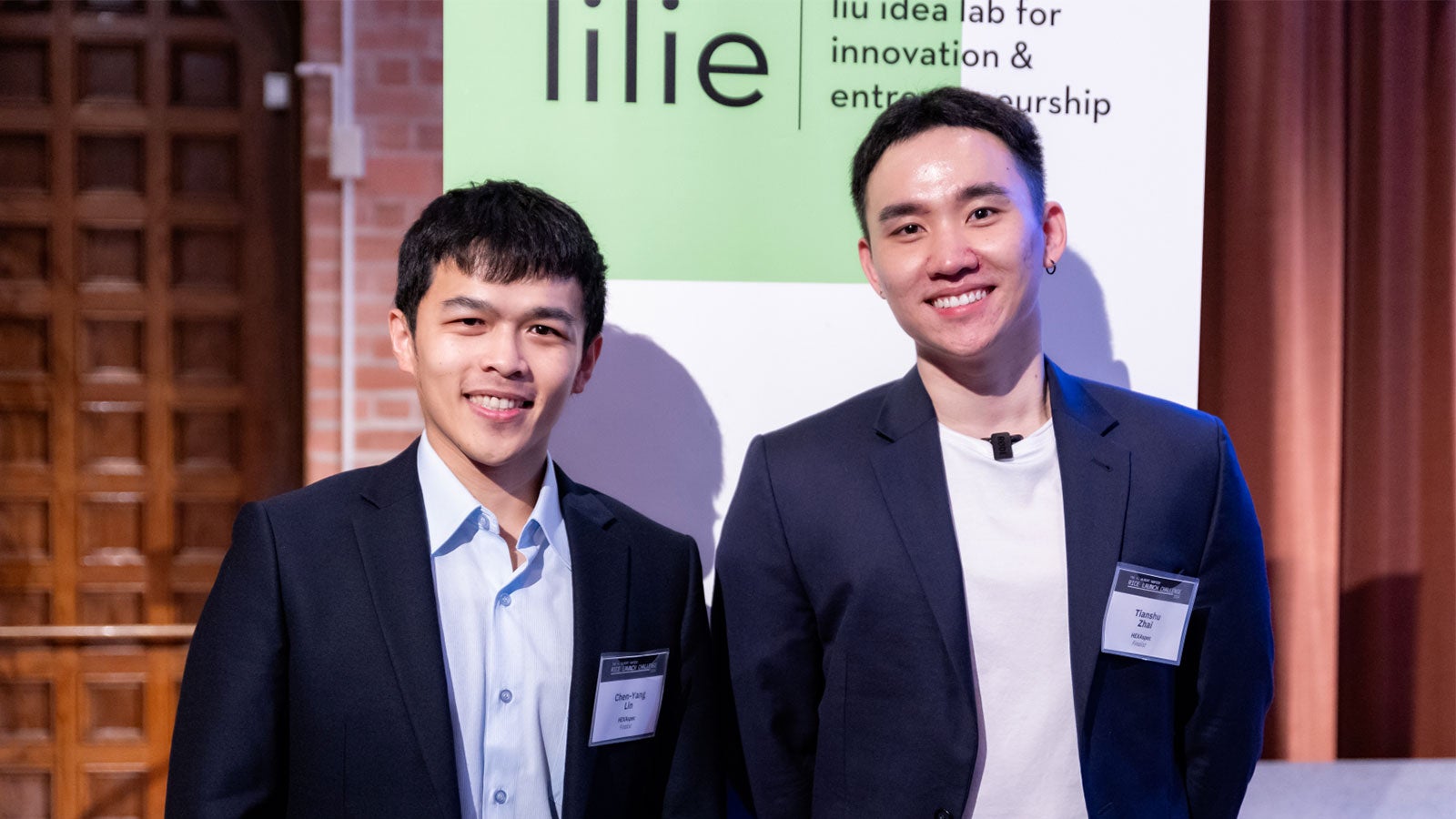Researchers continue to discover unexpected and potentially useful and lucrative properties in hexagonal boron nitride (h-BN), a substance that has inspired two Rice graduate students to start a company and market their findings.
“Boron nitride is one of the toughest materials. It has been used as a lubricant and as an additive to cosmetics, and it’s found in ceramics and metal compounds to improve their mechanical strength. It has unique qualities that make it pretty remarkable,” said Tianshu Zhai, who earned his M.E. in materials science and nanoengineering (MSNE) from Rice in 2019 and will receive his Ph.D. in December.
With Chen-Yang Lin, a fourth-year doctoral student in MSNE who earned his M.E. in the same field from Rice in 2018, he has founded the start-up HEXAspec. Though h-BN possesses many desirable qualities, the partners are focusing on its capacity to improve heat management for the semiconductor industry.
Structurally, h-BN resembles graphene. The alternating boron and nitrogen atoms are arranged in a flat lattice of interconnected hexagons. Among its other useful properties, h-BN is inexpensive and stable at room temperature and under atmospheric pressure.
Both graduate students work in the Nanomaterials, Nanomechanics and Nanodevices Lab of Jun Lou, professor of MSNE. Their company’s slogan is “Help Chips Beat the Heat.”
“Our inorganic fillers for next-generation chip packaging,” Zhai said, “have 20 times higher thermal conductivity. It cools the chips faster and reduces the operational surface temperature. This will save energy and millions of gallons of water used to cool data centers.”
In April, HEXAspec won the top prize and $50,000 in cash at the 2024 H. Albert Napier Rice Launch Challenge, hosted by Rice's Liu Idea Lab for Innovation and Entrepreneurship (Lilie). That same month, the company also placed first in the Rice Business Plan Competition Qualifier, winning an additional $2,500, and represented Rice in a competition against 40 startups from other universities.
They had already received $50,000 from the National Science Foundation’s Innovation Corps (I-Corps). The partners are busy meeting with potential investors, most recently in the Bay Area, and with patent attorneys.
“We’re moving our lab into the Ion building. Our intention is to stay in Houston and build our company,” Zhai said.

